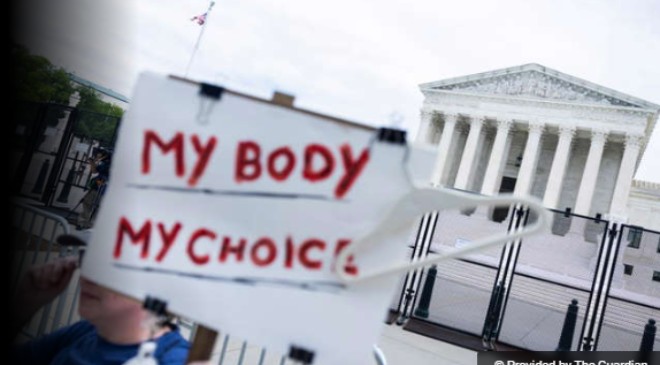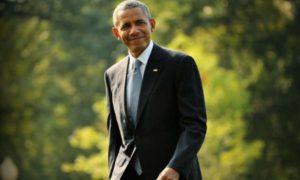In vitro fertilization treatment is facing a “clear and present danger” and could be a “casualty” of some of the proposed anti-abortion laws that are emerging across the US, according to a key advocate of reproductive medicine.
The warning comes as US states, including Louisiana, have passed or are debating new proposed legislation that would give full rights to embryos, which in some cases means fertilized eggs, created in the process of IVF and not implanted in a woman, would have the same legal rights as children.
“What we’re seeing is that in their fervor to curry the most favor with the forced birth movement, politicians are crafting some really sloppily worded legislation,” said Sean Tipton, the chief advocacy and policy officer of the American Society for Reproductive Medicine. “There is a fever to be as restrictive as you can.”
Experts say that the passage of so-called “personhood” laws, which give rights to fertilized eggs, could dramatically curtail the availability and practice of IVF in some states, and could in effect make it illegal for IVF facilities to freeze or discard embryos created in the process.
Tipton said he believed that proposed laws – which could be passed if Roe v Wade is overturned by the supreme court in coming weeks – could have “unintended consequences” on issues ranging from ectopic pregnancies to IVF. If, for example, Tipton said, laws are not written to give doctors the right to perform abortions for women who have an ectopic pregnancy, it would represent a “death sentence for the mother”.
While most Republican legislators have not explicitly criticized IVF, some of the most extreme anti-abortion activists – especially those affiliated with the Catholic church – have long been critical of the practice.
Steve Aden, chief legal officer for Americans United for Life, recently likened the process of IVF to “eugenics”, a term coined in the 1880s which refer to the bogus science of selecting desirable characteristics to improve and strengthen future generations.
Aden said in an interview with the Guardian that “most” forms of IVF created “embryonic human beings” in a “eugenic way”, making it “inevitable” that embryos would be destroyed.
“I do think that as as people understand better what IVF does – even people who are engaged in the process of IVF sometimes don’t understand the implications of it – that we will turn away from this creation and freezing of hundreds of thousands of distinct individual human beings who remain in limbo forever or are ultimately cast off as if the trash,” Aden said. “I think that’s untenable in a culture that respects all human life.”
Students for Life, another anti-abortion group that has gained traction in recent years for its support of total abortion bans, has said IVF comes with its own “unique set of risks” and called it a “damaging and destructive process”.
The group has instead promoted what it has called a “breakthrough” in reproductive health called NaProTechnology. The process, which is backed and promoted by Catholic institutions that oppose IVF, relies on the monitoring of cervical mucus and bleeding changes in a woman’s menstrual cycle to try to assess why a woman might be experiencing infertility.
Republican legislators have in the past sought to ensure that IVF procedures were carved out of anti-abortion bans. But Tipton of the American Society for Reproductive Medicine said he believed some legislators were increasingly seeing “scientific realities” as political “compromises”.
If the draft decision that was leaked last week that overturns Roe vs Wade is ultimately passed by the supreme court, it would leave questions around abortion up to individual states.
Justice Amy Coney Barrett, who sided with the majority in the draft opinion, was asked about her views about IVF during her 2020 confirmation hearing. The questions followed a report in the Guardian that detailed how, years earlier, when Barrett was a law professor at Notre Dame, she publicly stated her opposition to Roe v Wade and signed a newspaper advertisement by an extreme anti-abortion organization that said it believed life began at “fertilization”, a common refrain for anti-abortion groups that oppose IVF and certain forms of contraception.
The organization, called St Joseph County Right to Life, has said it believes that discarding excess embryos created during the IVF process was akin to the act of having an abortion and that the process of discarding embryos ought to be criminalized.
Pressed on the matter by Senator Richard Blumenthal, a Democrat, Barrett said the statement she signed had validated the views of her church. She declined to answer questions about whether criminalizing IVF would be constitutional, saying the question was “abstract”.
Barrett said in her confirmation hearings that her personal religious views would not have a bearing on her legal judgements.
In Indiana, before she was a supreme court justice, Barrett served on the council of St Joseph Catholic church, which is part of the Fort Wayne-South Bend diocese in Indiana.
The diocese has spoken forcefully against IVF, including one 2019 newsletter report by a priest, Tadeusz Pacholczyk, who said creating children in the “cold, clinical and commercial venture that is in vitro fertilization” was an act against the “human dignity of our offspring”.
“The heart of the IVF process itself, the practice of joining sperm and egg together in the fertility clinic, remains an intrinsic evil, flowing from the decision to allow our offspring to be “manufactured,” he wrote.











































